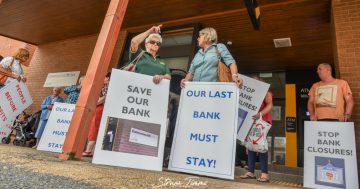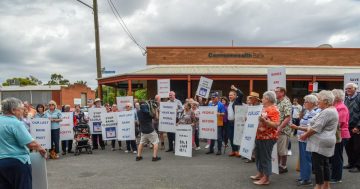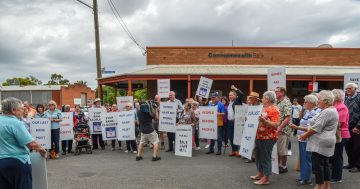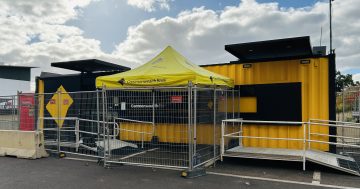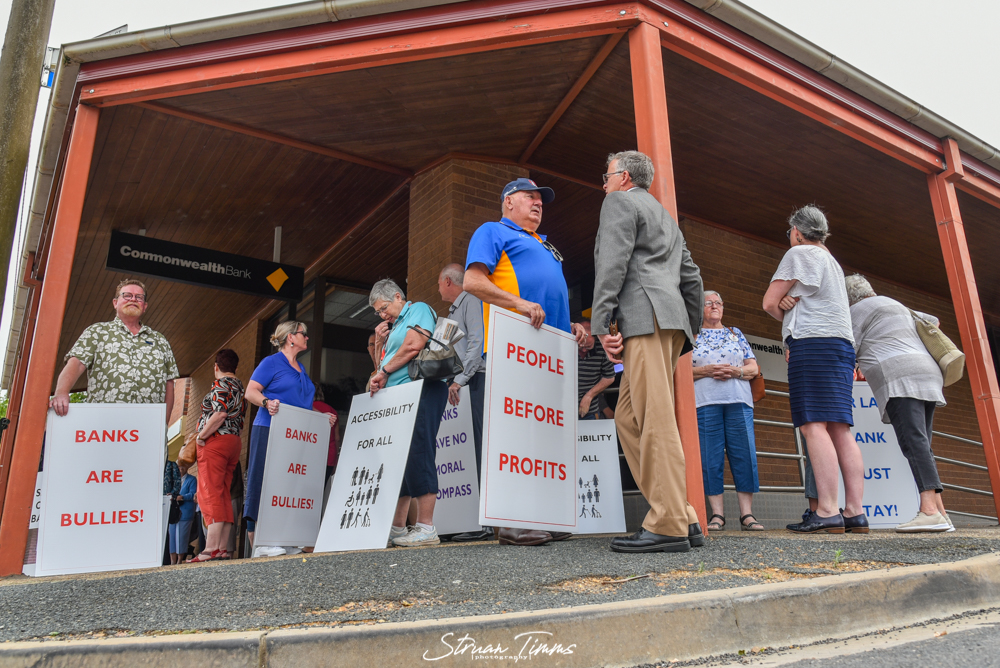
Protests against the CBA closure in Junee. Photo: Struan Timms Photography.
There is a renewed push for the Federal Government to re-establish its own public bank that could provide services to small towns that have lost their last financial institution.
Commercial bank closures have caused outrage across Australia this past month, most notably in Junee, where a fierce grassroots campaign saw the Commonwealth Bank of Australia (CBA) postpone its decision to shut the only bank in the town. The Senate recently announced a new inquiry into the impact of regional bank closures, but that hasn’t stopped Westpac and ANZ pushing ahead with closing their last branch in Hay and Tumut respectively.
Researcher Dale Webster says there are now 597 country town across Australia that have lost their last remaining bank – disadvantaging local family-run businesses that have to travel long distances to make transactions, as well as elderly residents unable to use online facilities.
Macquarie University economist Ben Spies-Butcher says the Federal Government can do more to help these rural communities than just hold inquiries.
“Banking licences are a privilege of the state. The Government could say, ‘We are only going to give licences to banks that meet certain social obligations’,” he said.
The scarcity of banking licences has helped create a sector dominated by four players – CBA, Westpac, ANZ and NAB – who were able to exert their market power to earn an estimated $28.4 billion profit in 2022, the same year they closed dozens of rural branches. Mr Spies-Butcher says government can step in to force them to provide a decent level of service to the bush, as a condition of holding a licence.
Liberal MP Gerard Rennick would go a step further, arguing the Federal Government should open and run its own postal bank and insurance service to provide an alternative for regional residents who he says are being abandoned by the ‘Big Four’.
“A postal bank and insurance service will help provide essential services at a reasonable cost and in doing so make the private banks and insurance companies more competitive and accountable,” he argued.
While some post offices are now offering limited deposit and withdrawal services, Mr Rennick would like to see a more comprehensive model, in which a new government bank offered loans, bank cards and all the other facilities provided by commercial banks.
Australia once had a government bank – the CBA was publicly owned between 1911 and 1991. A discussion paper by progressive think tank Per Capita said the opening of the government-owned CBA “forced the private banks to practically abolish their charges on current accounts … in order to remain competitive”. The CBA’s privatisation has coincided with bank branches closing across rural areas, the paper observed. Ms Webster estimates two-thirds of all regional branches have shut since banking deregulation commenced in Australia.
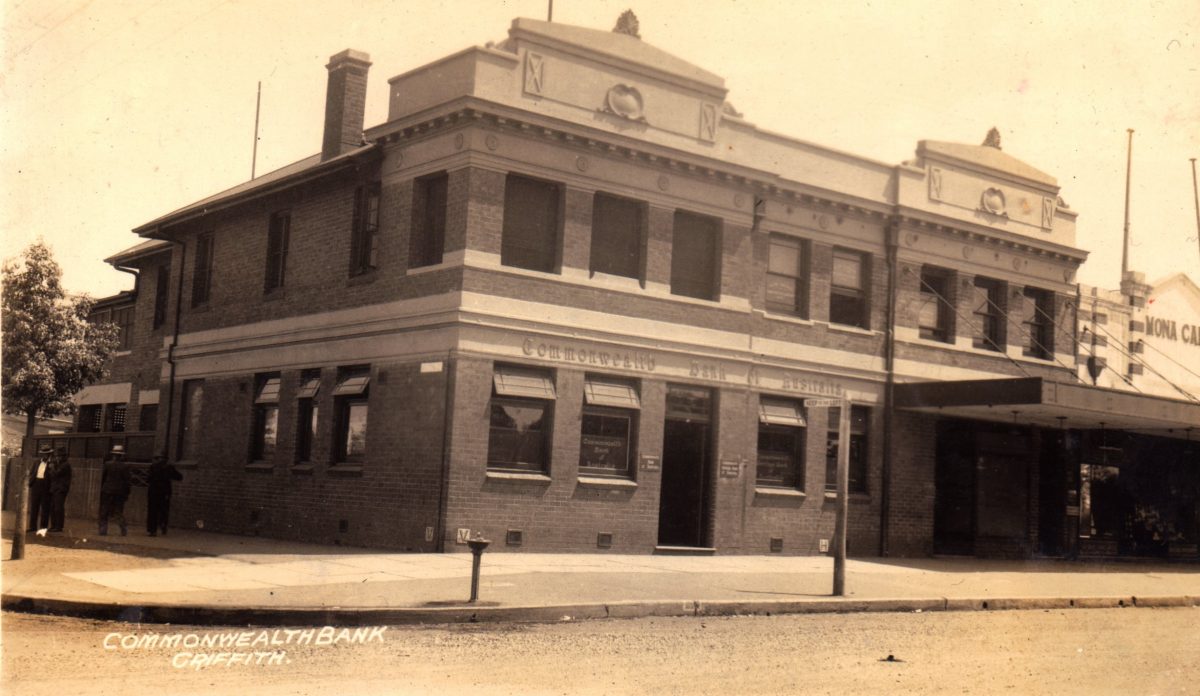
The then government-owned Commonwealth Bank in Griffith in 1920. Photo: Western Riverina Libraries.
“It’s entirely plausible and possible [for Australia to have a public bank once again], it’s more a question of priorities for the Government,” Mr Spies-Butcher said.
James Davis, general manager of Junee Shire Council, who campaigned against the CBA’s planned closure in his town, supports the concept.
“If there were to be a government-owned bank, at least then the commercial banks would have to compete on service … you would have the banks coming back to rural communities.”
By contrast, Charles Sturt University economics professor John Hicks sees the return of a public bank as a step backwards.
“The financial deregulation that occured in the 1980s under [prime ministers] Hawke and Keating have created a lot of our prosperity … commercial banks would see [a public bank] as holding an unfair advantage.”
He says small towns need to adjust to the realities of a more cashless society.
“Even people at farmers’ markets are offering electronic transactions … the Government is the last institution that should complain about [bank closures], given the number of their services that have now gone online.”
While government postal banks currently operate in countries such as New Zealand, France and Italy, even proponents concede it’s unlikely to ever happen here.
“Nationalisation doesn’t seem to work as well in Australia as it has in a lot of other countries … opposition from the private sector tends to be fierce,” Mr Spies-Butcher said.








